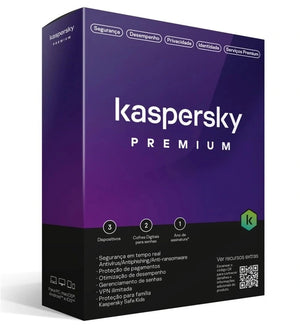Have you ever wondered if Microsoft Office is worth paying for or if there are free alternatives that can meet your needs? If you work with documents, spreadsheets, presentations or other types of files, you've probably used or are familiar with Microsoft Office, the most popular program suite in the world. But is it the best choice for you?
In this article, we will compare Microsoft Office with some free alternatives, such as Google Workspace , LibreOffice and WPS Office . We will analyze the pros and cons of each option, considering aspects such as features, compatibility, security, support and cost-benefit.
This way, you can decide which is the best solution for your work or business. Stay with us and discover everything you need to know about Microsoft Office and free alternatives. Let's go?
- What is Microsoft Office and what are its benefits? 📄
- What are the top free alternatives to Microsoft Office? 🆓
- How to compare Microsoft Office and free alternatives? 📊
- What are the criteria for choosing the best option for you? 🎯
What is Microsoft Office and what are its benefits?
Microsoft Office is a set of programs developed by Microsoft that allows you to create, edit, share and store different types of files.
It consists of applications such as Word (text editor), Excel (spreadsheet), PowerPoint (presentation creator), Outlook (email manager), OneNote (digital notepad), among others. . Microsoft Office is one of the most used tools in the corporate world, as it offers a series of benefits, such as:
- High quality and variety of features: Microsoft Office programs have advanced and diverse features that allow you to create professional and personalized documents, with graphs, tables, images, videos, animations, formulas, macros and much more.
- High compatibility and integration: Microsoft Office programs are compatible with most operating systems and devices, and easily integrate with other Microsoft services, such as OneDrive (cloud storage), Teams (communication and collaboration) and SharePoint (content management).
- High security and reliability: Microsoft Office programs have security features that protect your files against viruses, hackers and accidental loss, in addition to offering constant updates that ensure proper functioning and error correction.
What are the top free alternatives to Microsoft Office?
Despite the benefits of Microsoft Office , not everyone can or wants to pay for its use. Fortunately, there are some free alternatives that can replace or complement Microsoft programs. Some of the best known are:
- Google Workspace: is a set of online programs that allow you to create, edit, share and store files in the cloud. It is made up of applications such as Google Docs (text editor), Google Sheets (spreadsheet), Google Slides (presentation creator), Gmail (email manager), Google Keep (digital notepad ), between others.
- LibreOffice: is a set of open source programs that allow you to create, edit, share and store files on your computer or in the cloud. It is made up of applications such as Writer (text editor), Calc (spreadsheet), Impress (presentation creator), Base (database manager), Draw (graphics editor), among others.
- WPS Office: is a set of programs that allows you to create, edit, share and store files on your computer, in the cloud or on your cell phone. It consists of applications such as WPS Writer (text editor), WPS Spreadsheets (spreadsheet), WPS Presentation (presentation creator), WPS PDF (PDF reader and editor), among others.
How to compare Microsoft Office and free alternatives?
To compare Microsoft Office and free alternatives, you need to take into account some criteria, such as:
-
Features : what features does each option offer and what are their limitations? For example, Google Workspace has the advantage of allowing real-time collaborative editing, but has the disadvantage of depending on an internet connection. LibreOffice has the advantage of being completely free and customizable, but it has the disadvantage of having a less intuitive and modern interface. WPS Office has the advantage of being highly compatible with Microsoft Office formats, but has the disadvantage of displaying advertisements in the free version.
-
Compatibility : What operating systems and devices does each option support, and what file formats does each option read and save? For example, Microsoft Office is compatible with Windows, Mac, Android and iOS, and reads and saves files in DOCX, XLSX, PPTX formats, among others. Google Workspace is compatible with any web browser, and reads and saves files in DOCX, XLSX, PPTX, PDF formats, among others. LibreOffice is compatible with Windows, Mac and Linux, and reads and saves files in ODT, ODS, ODP, PDF formats, among others. WPS Office is compatible with Windows, Mac, Android and iOS, and reads and saves files in DOCX, XLSX, PPTX, PDF formats, among others.
-
Security : what mechanisms does each option use to protect your files against external and internal risks? For example, Microsoft Office has features such as encryption, multi-factor authentication, automatic backup and recovery from previous versions. Google Workspace has features such as encryption, multi-factor authentication, automatic backup and revision history. LibreOffice has features such as encryption, digital signature and automatic recovery. WPS Office has features such as encryption, automatic backup and recovery from previous versions.
-
Support : what are the channels and means that each option provides to help its users in case of questions or problems? For example, Microsoft Office offers phone, online chat, email, and forum support. Google Workspace offers phone, live chat, email, and help center support. LibreOffice offers forum, wiki, and documentation support. WPS Office offers online chat, email, and help center support.
What are the criteria for choosing the best option for you?
After comparing Microsoft Office and free alternatives, you should choose the best option for you according to your goals, needs and preferences. Some criteria that can help with your decision are:
-
Cost-benefit : how much are you willing to pay to use the programs and what return do you expect to get? For example, if you need advanced, integrated functionality to work with complex or confidential documents, it might be worth investing in Microsoft Office. If you only need basic or intermediate functionality to work with simple or shared documents, it may be enough to use one of the free alternatives.
-
Ease of use : How much time and effort are you willing to dedicate to learning how to use the programs and what are your technical skills? For example, if you're already used to the Microsoft Office interface and shortcuts, it may be more convenient to stick with that option. If you prefer a smoother and more intuitive learning curve, you can opt for one of the free alternatives.
-
Collaboration and compatibility : Who do you need to collaborate with and what tools do they use? For example, if you work in a team and need to collaborate in real time with coworkers or clients, Google Workspace can be an effective choice. If you need to share documents with others who use Microsoft Office, compatibility is key.
-
Security requirements : What security and compliance standards does your organization require? For example, if you work with sensitive or regulated data, Microsoft Office can offer advanced security and compliance features that meet your business requirements.
Visit our Up Software Store to purchase Microsoft Office and other software solutions. Improve your productivity now!






